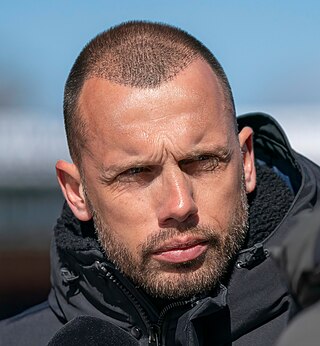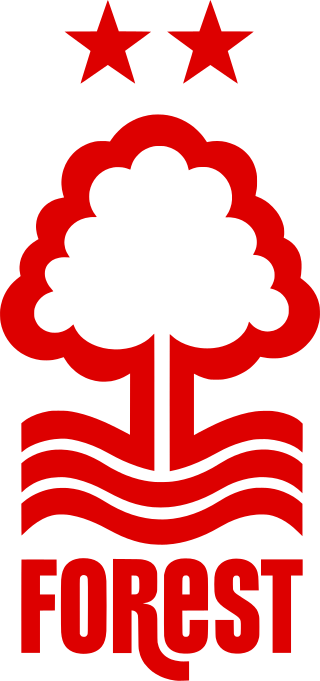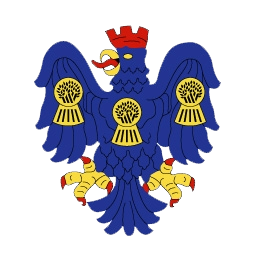
The English Premier League is a professional association football league in England and the highest level of the English football league system. Contested by 20 clubs, it operates on a system of promotion and relegation with the English Football League (EFL). Seasons usually run from August to May, with each team playing 38 matches: two against each other team, one home and one away. Most games are played on weekend afternoons, with occasional weekday evening fixtures.

The Football Association is the governing body of association football in England and the Crown Dependencies of Jersey, Guernsey and the Isle of Man. Formed in 1863, it is the oldest football association in the world and is responsible for overseeing all aspects of the amateur and professional game in its territory.

Barry Town United Football Club is a semi-professional association football team based in Barry, Wales. They currently play in the Cymru Premier.

Connah's Quay Nomads Football Club is a Welsh professional football club based in Connah's Quay, Flintshire. They play in the Cymru Premier.

Rhyl Football Club was a Welsh football club based in Rhyl, a seaside resort town located in Denbighshire. It withdrew from footballing activities in April 2020 and had its entire footballing record for the 2019–20 season expunged. It was formally dissolved 18 months later in October 2021.

John Gijsbert Alan "Johnny" Heitinga is a Dutch football coach and a former player who played as a centre back. He is currently the assistant first-team coach at Premier League club Liverpool.
Football is the most popular sport in the United Kingdom. Football is organised on a separate basis in each of the four constituent countries, England, Scotland, Wales, and Northern Ireland, that make up the United Kingdom (UK), with each having a national football association responsible for the overall management of football within their respective country. There is no United Kingdom national football team. Football has been the most popular sport in the UK since the 1860s. Rugby union, rugby league and cricket are other popular sports.
The Academy of West Ham United F.C. is historically one of the most productive football academies in British football. This success has resulted in its nickname the Academy of Football.

Association football is one of the most popular sports in Wales, along with rugby union. Wales has produced club teams of varying fortunes since the early birth of football during the Victorian period, and in 1876 a Wales national football team played their first international match. Football has always had a close rivalry with the country's de facto national sport rugby union, and it is much discussed as to which is Wales' more popular game. The Football Association of Wales (FAW), was established in 1876 to oversee the Wales national team and govern the sport in Wales, later creating and running the Welsh football league system.
Birmingham City Women F.C. is an English women's football club affiliated with Birmingham City F.C. As founding members of the FA Women's Super League in 2011, the team currently plays in the second-highest division of women's football in England. The team plays their home games at St Andrew's, the home of Birmingham City F.C.

Blackburn Rovers Women Football Club is a women's football club based in Blackburn, Lancashire, England, that competes in the Women's Championship, the second tier of English women's football, after gaining promotion from the Women's National League North at the end of the 2018–19 season. The club spent five seasons in the FA Women's Premier League National Division, the highest level of the women's game in England prior to the formation of the Women's Super League in 2011, from 2006 until their relegation at the end of the 2010–11 season. They declined to submit an application to become an inaugural member of the Women's Super League due to their reluctance to split the team from the men's. They have been affiliated with Blackburn Rovers as the women's division since their formation in 1991.
Quota players are athletes in team sports whos numbers in a specific team are limited due to the rules of specific competitions said team plays in. At present most of these restrictions are used to aid financial equality between teams or encourage the use of local players.

Aaron James Ramsey is a Welsh professional footballer who plays as a midfielder for EFL Championship club Cardiff City and captains the Wales national team. Ramsey mainly plays as a box-to-box midfielder, but has also been deployed on the left and right wings.

Loughborough University Football Club is an English football club representing Loughborough University, based in Loughborough, Leicestershire. The club are currently members of the Northern Premier League Division One Midlands and play at the Loughborough University Stadium.
Gregory Alexander Draper is an English-born New Zealand footballer and coach who is currently a player-coach with The New Saints under-21s.

Nottingham Forest Women is an English women's association football club affiliated with Nottingham Forest Football Club. Nottingham Forest Women are members of the FA Women's National League North, which stands at level three of the women's football league pyramid.

Northwich Victoria Football Club are a semi-professional football club based in Northwich, Cheshire, which compete in the Midland League Premier Division. They play home games at Barton Stadium, in a groundshare agreement with nearby rivals Winsford United. They had played at the same Drill Field ground between 1875 and 2002, which was at the time of its demolition was believed to be the oldest ground in the world on which football had been continuously played. They played at the short-lived Victoria Stadium between 2005 and 2011, and have since been forced to share grounds with nearby clubs.

Kelechi Promise Iheanacho is a Nigerian professional footballer who plays as a striker for La Liga club Sevilla and the Nigeria national team.

William Alain André Gabriel Saliba is a French professional footballer who plays as a centre-back for Premier League club Arsenal and the France national team. Regarded as one of the best centre-backs in the world, he is known for his strength, pace, tackling and composure.
EU status in association football is whether a football player is considered a citizen of the European Union (EU) for the purposes of labour law within domestic European football leagues. There are different rules for which players are eligible for EU status in different European leagues, and leagues have different rules on how many players from outside the EU may be registered. Players within European league systems who are not considered European citizens are known as "non-EU".













